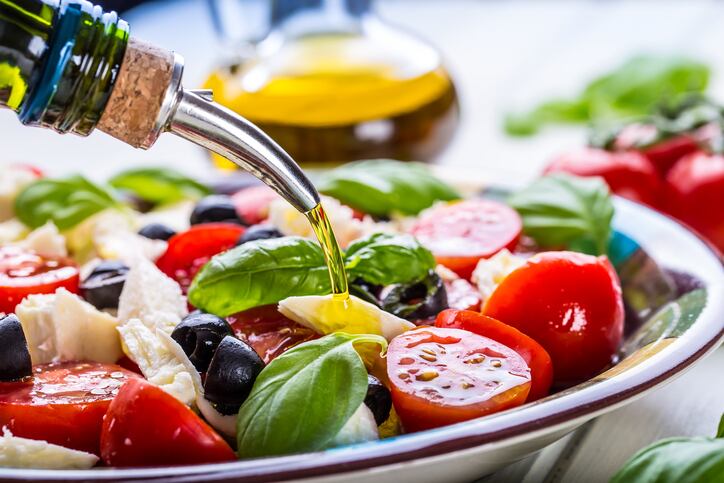Plant sterols are well-known natural lipid-lowering agents as they impair cholesterol absorption from the bowel via different mechanisms: by competing with dietary and biliary cholesterol for micellar solubilization in the intestinal lumen, impairing intestinal cholesterol absorption, altering the conversion of bile acids into secondary bile acids, and lowering the bile acid hydrophobic/hydrophilic ratio.
But there is a great interindividual variability in response to plant sterol supplementation.
The authors of the curent study, from University of Bologna, Italy, assert that it has to be acknowledged that most of the available evidence on plant sterols and cardiovascular risk comes from clinical trials conducted in North America and Northern and Central Europe, where the consumption of meat and dairy products is high and the diet tends to be low in whole grains, fruit, and vegetables.
They note: "However, the add-on effect of dietary supplementation with phytosterols in individuals already following a plant-based diet has not yet been fully investigated, even though this is the most suggested dietary pattern to reduce CV risk.
"Moreover, previously published clinical studies mainly tested functional foods enriched in phytosterols that had to be taken more times a day and needed to be stored and consumed following specific instructions to avoid losing their quality and nutritional value."
To fill the gaps in the available knowledge, the researchers carried out a double-blind, placebo-controlled, randomized clinical trial named DESCO (Diet and plant sterols in the control of cholesterolemia) in 2022 to test the short-term lipid-lowering effect of a once-a-day ready-to-drink dietary supplement containing 2.5 g of plant sterols in 50 Italian individuals with mild-to-moderate hypercholesterolemia.
At 3-week follow-up, supplementation with phytosterols, as expected, was associated with significant improvement in plasma TC, LDL-C, and Apo B-100 compared to baseline and as an adjunct to their standard diet. TC and LDL-C reduction were also significantly reduced when compared to placebo.
Inter-individual responses
In the current report, they investigated whether the LDL-lowering (low-density lipoprotein cholesterol) effect of the tested dietary supplement was affected by the degree of adherence of the study’s participants to the Mediterranean diet.
Their analysis of the data revealed greater adherence to the Mediterranean diet significantly correlated with a more relevant clinical improvement in LDL-C (−9.2 ± 11.8%) and TC (−12.3 ± 8.6%), thereby suggesting a potential synergy between phytosterol and other active components of the Mediterranean diet.
"Our preliminary observation of a potential additive effect of plant sterol efficacy from good adherence to the Mediterranean diet is also useful considering that the Mediterranean diet per se has proven to be an effective means to prevent ASCVD.
"In fact, compared to different healthy dietary approaches, it has been estimated that the Mediterranean diet is associated with a significant reduction in the risk of cardiovascular mortality (odds ratio 0.55, 95% CI 0.39 to 0.78), stroke (odds ratio 0.65, 95% CI 0.46 to 0.93), and non-fatal myocardial infarction (odds ratio 0.48, 95% CI 0.36 to 0.65). Therefore, increasing the cholesterol-lowering ability of a healthy diet could further improve its preventive potential."
Discussing the mechanisms of action at play, the researchers state: "A possible explanation of this observation might be the larger quantity of polyphenols usually found in the Mediterranean diet. Since these compounds have been shown to exert a slight inhibition of cholesterol synthesis due to the inhibition of HMGCoA reductase, their effect might theoretically potentiate the hypocholesterolemic effects of phytosterols acting on cholesterol absorption from the gut."
Source: Nutrients
https://doi.org/10.3390/nu15214555 (registering DOI)
"The Effect of Dietary Supplementation with Plant Sterols on Total and LDL-Cholesterol in Plasma Is Affected by Adherence to Mediterranean Diet: Insights from the DESCO Randomized Clinical Study"
Cicero, A.F.G.; Fogacci, F.; Giovannini, M.; Rizzoli, E.; Grandi, E.; D’Addato, S.; Borghi, C.


